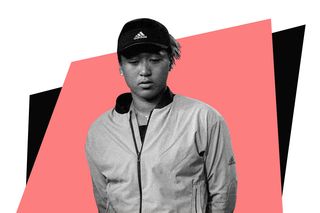
Naomi Osaka Quitting French Open Sets an Example to Prioritize Mental Health at Work
While quitting is a privilege, the decision sets a precedent to normalize seeking accommodations for one’s mental health, just as one would for physical health.

Naomi Osaka, thefour-time Grand Slam champion and current World No. 2 in women’s tennis, announced her decision to quit the ongoing French Open — citing mental health issues. The withdrawal would be the “best thing for the tournament, the other players, and my well-being,” she said.
Last week, Osaka opted out of press conferences and other media obligations that are part of the championship. In response, heads of the four Grand Slam tournaments imposed a fine of $15,000 on her for not honoring her “contractual media obligations.”
And last night, she announced her decision to quit the tournament itself — sending across an urgent, important message to prioritize one’s mental health over others’ expectations of one’s career.
“Anyone that knows me knows I’m introverted, and anyone that has seen me at tournaments will notice that I’m often wearing headphones as that helps my social anxiety… I was already feeling vulnerable and anxious so I thought it was better to exercise self-care and skip the press conferences,” she tweeted, adding that she has been having “a really hard time coping with [depression].”
An international sportsperson voluntarily opting out of a coveted tennis tournament to safeguard her mental health was “shocking” to many — even though players routinely quit tournaments due to physical injuries. This leaves one to wonder whether the shock-value of her decision is reflective of the fact that as a society, we don’t treat mental health at par with physical health — perhaps, because of its invisibility.
Arguably, quitting isn’t an option for everyone — not everyone shares the privilege of having the wherewithal to not only recognize their mental and emotional turmoil, but also actively address it. The power to quit without facing any direct consequences, like losing big-time endorsements or social clout, in her case, is not afforded to many.
But that’s also what makes Osaka’s decision to state mental health concerns as a tangible reason to withdraw more powerful. It is not just a statement against society’s lack of empathy towards people’s mental health, but also a precedent to normalize seeking accommodations for one’s mental health — just as one would for their physical health.
Related on The Swaddle:
We are accustomed to valuing “success” above everything else — whatever that may entail. In doing so, society perpetuates the idea that financial gains, and sometimes fame, are the only traits to aspire for — forcing people to adhere to this ideal from an early age. Even though experts note that caring for one’s mental health, rather than one’s economic capabilities, determines one’s happiness — there is an insistence to still cling to a rather narrow idea of success.
Moreover, caught in a culture that idolizes working around the clock — “come what may” simply to meet deadlines — prevents many from even seeking leeways for their mental health. Working for sustenance, they often don’t have a financial safety net to fall back upon, and continue working despite realizing the toll it’s taking on them. They are neither in a position to set an example for their peers, nor get their superiors to acknowledge and address their suffering because “for every [worker] that gets burnt out and quits, there are a hundred fresh-faced [candidates] vying for the position because the pay sounds great,” an article on the LiveWire reads. This forces people to deal with consequences like burnouts, cardiovascular diseases, and even premature death — simply because they cannot quit.
“Even when [my client] had family members with coronavirus, he was expected to work,” Devika Kapoor, a counseling psychologist from Mumbai, told Vice about how unwilling corporations can be to their employees’ mental health during a deadly pandemic that ushered a mental health crisis.
In a world that celebrates “hustle culture” and determines individuals’ worth on the basis of their productivity — despite studies linking long working hours to depression and anxiety — decisions like Osaka’s are a reminder to reevaluate our priorities.
Unlike many others, Osaka was in a position to exercise her will and quit. And in doing so, she has not only set the example they couldn’t because of their circumstances — but also forced international media, and organizers of some of the world’s biggest sports tournaments to take note. Perhaps, the lesson for everyone here is to recalibrate and ask what the concept of “success” truly means, and what it is determined by; besides evaluating how as participants or viewers we can cultivate a culture that acknowledges and responds to suffering.
“I think that it’s really positive for there to be strong people out there that can stand up and maybe voice opinions that other people have thought and felt but haven’t had the courage to stand up and make those changes,” Caroline Anderson, a sports psychologist from Australia, told ABC News, adding: “Every time a high-profile athlete speaks about mental health issues I think it creates huge ripple effects in society and not just in the world of sport.”
During the ongoing global mental health crisis, Osaka’s statement, “I thought it was better to exercise self-care,” appears to resonate with people — irrespective of whether they wield the power to continue — or quit.
Devrupa Rakshit is an Associate Editor at The Swaddle. She is a lawyer by education, a poet by accident, a painter by shaukh, and autistic by birth. You can find her on Instagram @devruparakshit.
Related


Woe Is Me! “My Boyfriend Doesn’t Want A 9‑5 Job. Is He Enlightened, Or Just Lazy?”
